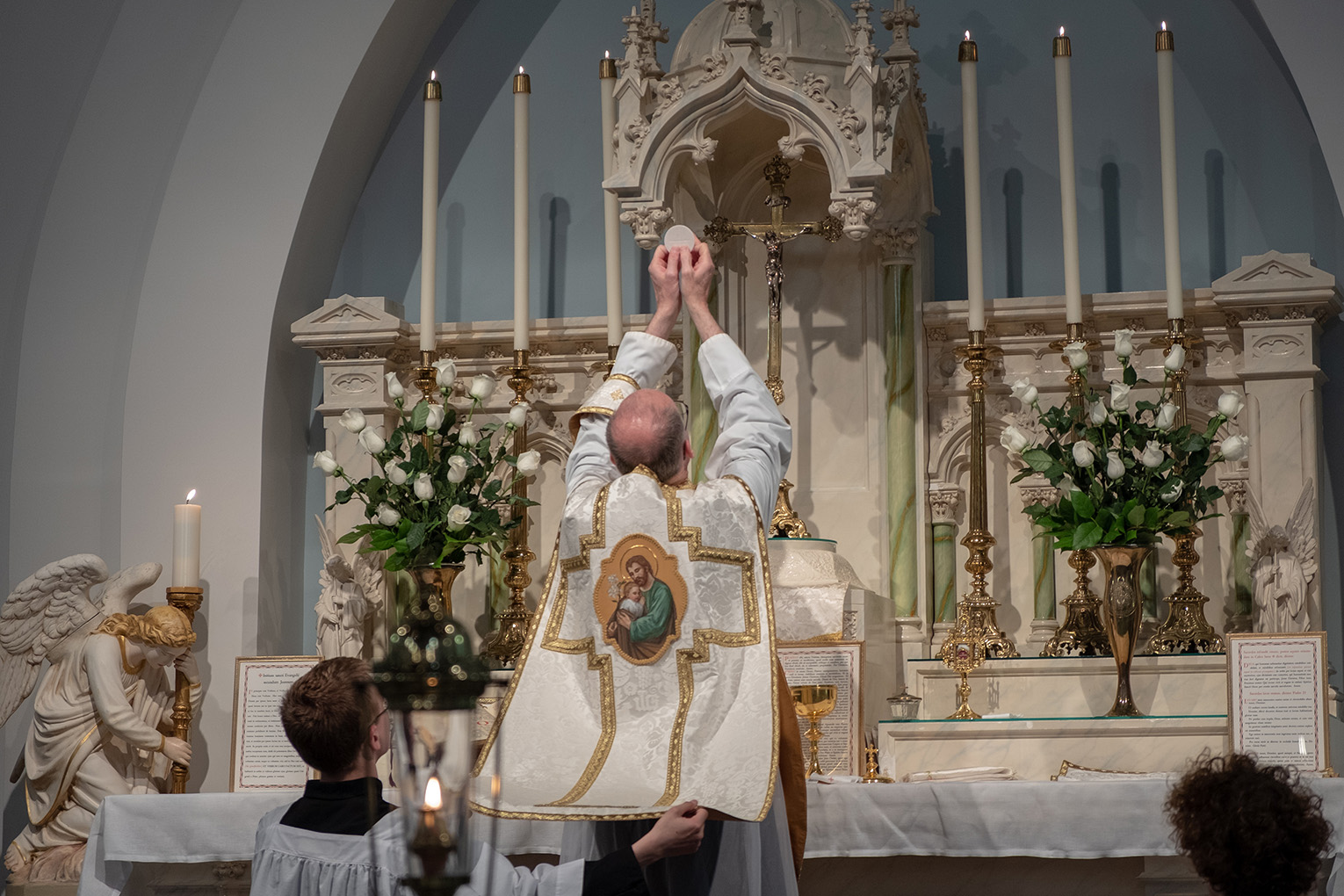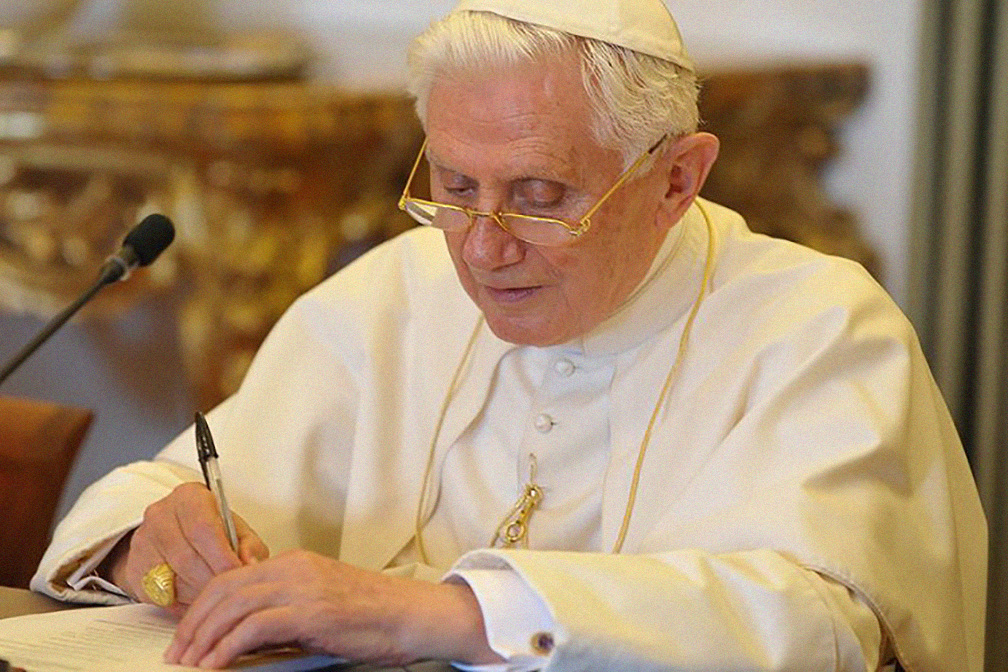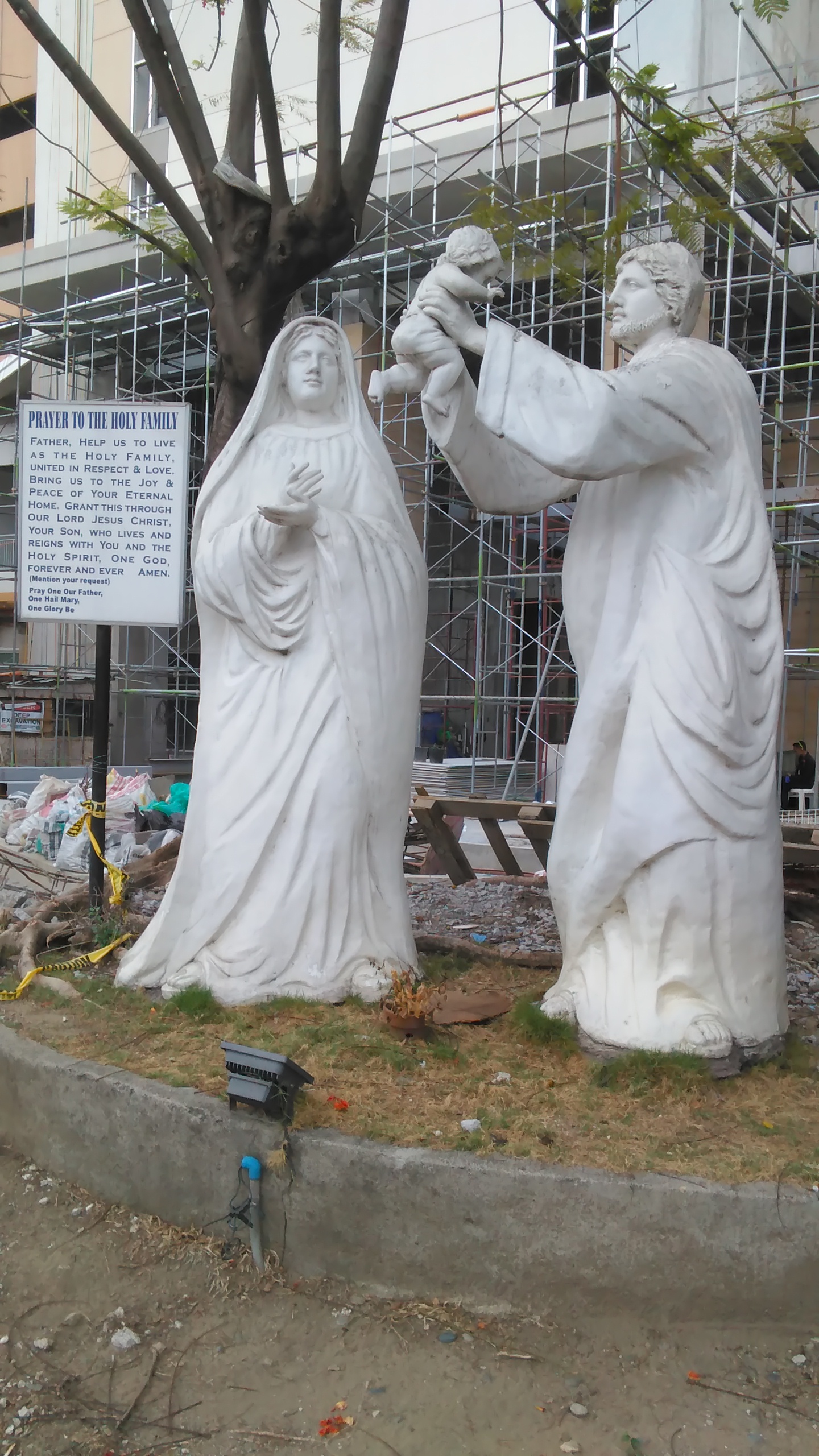by Romano M. Bulatao, Ph.D.

On April 16, 1927, Joseph Aloisius Ratzinger was born. He became a priest in 1951. In his younger years as a brilliant theologian, Ratzinger attended all four sessions as an expert or “peritus” to Cardinal Joseph Frings of Cologne during the Second Vatican Council (1962-1965). He also served as the Prefect of the Vatican Congregation for the Doctrine of Faith (CDF) from 1982 to 2005, under the papacy of St. John Paul II. Three days after his birthday in 2005, Cardinal Joseph Aloisius Ratzinger was elected pope and he took the name, Benedict XVI. A shocking event happened on February 11, 2013, when he resigned from the papacy, and he was called Pope Emeritus Benedict XVI since then. His death was announced on December 31, 2022 in Rome, Italy.
As we remember him on his birthday, the “humble worker,” and who is considered by many as the giant theologian of our time, allow me to share his insights about the “Ten Commandments” or the Decalogue today. The following excerpts were taken from my article entitled, “Towards a Critical Hermeneutics of the Torah.”
Introduction
In Pope Emeritus Benedict XVI, we have a widely acknowledged theologian pope – an intellectual giant and a towering figure of contemporary Catholic theology. He has written extensively and authoritatively on many issues. His writings and speeches continue to address the basic question, “What does the Bible tell Christians Today?” As such, these form a timely exegesis that cuts across cultures and moments with the contemporary Christian in view.
For Benedict XVI, man’s search for common truth among cultures leads him to “the knowledge of the basic rules of morality as they are found in the form of the Ten Commandments.” In other words, the Ten Commandments form the concrete answer to man’s question about the foundations of freedom.
First Commandment
“I, the Lord, am your God, who brought you out of the land of Egypt. You shall not have other gods besides me.” (Exodus 20:2-3)
Benedict XVI elaborates on the first commandment that “Man is on the right track when he recognizes God as God and lives a life of adoration of God. And he strays into the wrong path, into perversion of his existence, when he worships what is not God. When he makes divinities for himself and thereby, in the final analysis, worships himself.” This means that, man fulfills his being only when he recognizes that his whole existence is a relation to God who is the author of all creation.
Second Commandment
“You shall not take the name of the Lord, your God in vain.” (Exodus 20:7)
In describing the Second Commandment, Benedict XVI says that “It’s a matter of our staying in right order. At the very moment when we dishonor God, disfigure his face, and render him inaccessible to the world, so that we can no longer illuminate it, man loses his own light at the same time.” To stay in right order, as exhorted by Benedict XVI, means the conscious effort to see that whatever we are and do is in agreement with God whose name is man’s ultimate will.
Third Commandment
“Remember to keep holy the Sabbath day.” (Exodus 20:8)
The commandment on the Sabbath is not only limited to worship attendance; it is more about keeping the Sabbath holy, which means rest day with the Lord. According to Benedict XVI, “Today, man would like to have total, sole, and absolute dominion over his time. We have in fact forgotten how important it is to allow God into our time and not merely to use time as an element made for our own private purposes. It is a matter of standing aside from concepts of what is useful or practical – and thereby becoming available for others and for ourselves.”
Fourth Commandment
“Honor your father and your mother.” (Exodus 20:12)
Benedict XVI expresses that “This commandment is in fact the Magna Carta of the family… This basic and enduring respect for the human being is a most important aspect of this commandment.” The fourth commandment then urges us under obligation to respect, promote and protect the integrity of the family as society’s basic unit of existence.
Fifth Commandment
“You shall not kill.” (Exodus 20:13)
The commandment bears in it the unquestionable value of life. “Thou shall not kill,” elaborates Benedict XVI, is “a moral consciousness basic to human existence – that no one may simply dispose of another person. So it is especially important today for us to engage in the struggle for what this commandment represents – for God’s rights over all human life, from conception through to death.”
Sixth Commandment
“You shall not commit adultery.” (Exodus 20:14)
Adultery destroys not only the value of marriage and the sacredness of the family, but also the order in the community. Benedict XVI clearly enunciates that “It is concerned with the inviolability of the faithful relationship between man and wife, which not merely protects the future of mankind, but at the same time integrates human sexuality into human existence as a whole and, in that way alone, gives it its true value and stature for humanity. That is the heart of this commandment.”
Seventh Commandment
“You shall not steal.” (Exodus 20:15)
In today’s age of globalization, this commandment reminds us that being is more primordial than having. Benedict XVI expresses alarm in this global threat which, “At present, as hardly ever before, we can see clearly how people ruin their own lives by living only for the sake of what they own, for things, how they are destroyed by this and by making possessions their real god… We can see how the world of possessions takes powerful hold upon people’s lives. The more they have, the more they are dominated and enslaved by what they have, because they have to have to be giving ever more attention to preserving and increasing those possessions.”
Eighth Commandment
“You shall not bear false witness against your neighbor.” (Exodus 20:16)
Benedict XVI brings out the issue of truth as the foundation of human relationships, hence the Eighth Commandment for him is an imperative for truth-dealing with one another, lest human relationships collapse. He asserts that “In fundamental and precious gift for man is rooted here… For if I withhold the truth from someone, I withhold from him something essential and precious and lead him up a false path. Truth is love, and if love were to turn against truth, it would be mutilating itself.”
Ninth and Tenth Commandments
“You shall not covet your neighbor’s house. You shall not covet your neighbor’s wife.” (Exodus 20:17)
Basically, this act of coveting would create disorder in the community. Explaining the insight of the related Ninth and tenth Commandments, Benedict XVI articulates that “Sins are born of thoughts…, in envious thoughts, in the refusal to seek the good of the other person, in rejecting him… In consequence this appeals directly to the heart of man. For it is the heart that gives birth to man’s actions.”
Conclusion
Today, the Israelites’ reflections on the Decalogue and their actions in response to its moral and religious challenge remain as valid as ever for the Christians’ daily life. Benedict XVI rightly brings out the meaning and necessity of keeping the Decalogue or the Ten Commandments. That is, to be a Christian by practice definitely means to live out the Ten Commandments. Otherwise, one’s Christian identity is only a form of superficiality.
Finally, Benedict XVI has this to say, “God gave us the Commandments to teach us true freedom and genuine love, so that we can be truly happy. They are a sign of the love of God the Father, of his desire to teach us how to distinguish between good and evil, truth and falsehood, right and wrong. They are comprehensible to all because they set fundamental values as concrete rules and regulations, by putting them into practice man can walk the path of true freedom, which set him firmly on the path that leads to life and happiness. By contrast, when man ignores the Commandments in his life, not only does he alienate himself from God and abandon the alliance with him but he also distances himself from life and lasting happiness.”
References:
Benedict XVI, Video Message for the Initiative “10 Squares for the 10 Commandments, 8 September 2012.
Bulatao, Romano, “Towards a Critical Hermeneutics of the Torah.” Saint Louis University Research Journal, Vol. 38, No. 2, 2007 (pp. 253-271)
Ratzinger, Joseph Cardinal. 2004. Truth and tolerance: Christian belief and world religions. Translated by Henry Taylor. San Francisco: Ignatius Press.
__________. 2002. God and the world: Believing and living in our time (A conversation with Peter Seewald). Translated by Henry Taylor. San Francisco: Ignatius Press.
The Author

ROMANO M. BULATAO is a Professor at Saint Louis University (SLU), Baguio City. He completed his AB Philosophy in 1990 at the Saint Anthony Mary Claret College (SAMCC), Quezon City; MA Religious Studies in 2003, and MA Philosophy in 2014, both in SLU; Doctor of Philosophy (PhD) in Theology, Major in Missiology, at the Institute for Consecrated Life in Asia (ICLA) – SAMCC in 2021. Dr. Bulatao served as the Department Head of Religion at SLU (2006-2009); and President of the Kapatirang Claretiano Inc. – Pangasinan Chapter (KCI-PC), since 2011. He is the author of the book entitled Touching Thoughts A-Z published in 2009; translator of the Novena to Saint Anthony Mary Claret (from Pangasinan language to English) published in 2015; and the Novena kay San Antonio Maria Claret (from Pangasinan language to Filipino) published in 2020 by the Claretian Publications. (romanobulatao@yahoo.com)









